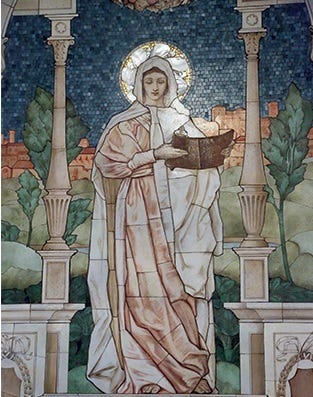Pope Francis, the 266th pope of the Catholic Church, has been a figure of significant interest and discussion since his election in 2013. Known for his humility, emphasis on social justice, and progressive stances on various issues, he has often sparked conversations about potential reforms within the Church. His approach to modernizing certain aspects of the Church while maintaining its core traditions has placed him at the center of debates concerning the future of Catholicism.
One of the most debated topics under Pope Francis's leadership is the role of women within the Church hierarchy. The possibility of ordaining women as deacons has become a focal point for discussions about gender equality and inclusion in the Catholic Church. As the global conversation around women's rights continues to evolve, the Vatican's stance on this issue remains closely watched by both supporters and critics alike. This article delves into Pope Francis's views on women deacons and explores the implications of his decisions for the future of the Catholic Church.
Pope Francis's recent comments have reiterated the Church's long-standing position that holy orders are reserved for men. Despite this firm stance, the Pope has shown openness to exploring the historical and theological aspects of women's roles in the Church, including the diaconate. In an interview with CBS News, Pope Francis clarified his position, emphasizing that while women cannot be ordained as priests or deacons in the traditional sense, there is room for enhancing their participation in other capacities. This nuanced approach highlights the complexities involved in balancing tradition with contemporary demands for inclusivity.
The Historical Context of Women in the Diaconate
The question of women serving as deacons is not new; it has roots that extend deep into the history of the early Christian Church. Historical records indicate that women served in diaconal roles in the first centuries of Christianity, often assisting in baptisms and providing pastoral care. However, over time, these roles diminished, and the formal diaconate became exclusively male. Pope Francis acknowledged this history when he established a study commission in 2016 to examine the ancient practice of women deacons and its potential relevance today.
The commission's findings have been a source of speculation and debate among theologians and Church leaders. While some argue that reinstating women deacons could enhance the Church's mission by tapping into the talents of its female members, others caution against altering established traditions without careful consideration. Pope Francis's decision to approve a new three-year reform process suggests a willingness to engage in further dialogue on this matter, albeit within the confines of existing doctrine.
This ongoing exploration reflects the Pope's commitment to addressing the evolving needs of the Church while respecting its foundational principles. By encouraging deeper reflection on the role of women, Pope Francis aims to foster a more inclusive Church that values the contributions of all its members.
Redefining Roles: A Path Forward for Women in the Church
Beyond the specific question of ordination, Pope Francis has consistently advocated for expanding the roles women play in the Church. He has spoken of the need to recognize and utilize the gifts and talents of women in various capacities, from leadership positions to active participation in decision-making processes. This broader vision aligns with his efforts to promote a more collaborative and participatory Church structure.
Reforms currently under consideration include initiatives to empower women through greater involvement in Church governance and administration. By creating new opportunities for women to serve in advisory and leadership roles, the Church can harness the full potential of its diverse membership. Such measures would not only address concerns about gender inequality but also strengthen the Church's ability to meet the challenges of the modern world.
Pope Francis's approval of a comprehensive reform process underscores his intention to remain engaged in shaping the future of the Church. Despite health challenges, he continues to champion reforms that reflect his vision of a Church that is both faithful to its traditions and responsive to contemporary realities.
Dialogue and Discernment: Navigating the Future
The issue of women deacons exemplifies the delicate balance required in navigating Church reforms. While Pope Francis has ruled out ordaining women as deacons in the strictest sense, he remains open to exploring alternative ways to enhance their involvement. This approach emphasizes the importance of dialogue and discernment in addressing complex theological and pastoral questions.
Some Catholic priests and scholars have expressed disappointment with the removal of the women deacon issue from recent synods, viewing it as a missed opportunity to advance meaningful change. However, proponents of gradual reform argue that significant shifts in Church policy require time, careful consideration, and widespread consensus. Pope Francis's establishment of a new commission to study the possibility of women deacons demonstrates his commitment to fostering an informed and respectful dialogue on this critical issue.
As the Catholic Church continues to grapple with questions of gender and authority, Pope Francis's leadership offers a model of thoughtful engagement and prudent action. By prioritizing dialogue and discernment, he seeks to ensure that any changes made are grounded in sound theology and aligned with the Church's mission to serve all people. This approach holds promise for a Church that is both steadfast in its traditions and adaptable to the changing needs of its global community.

